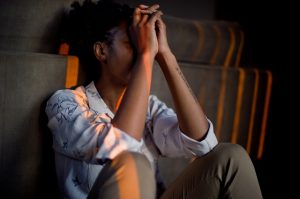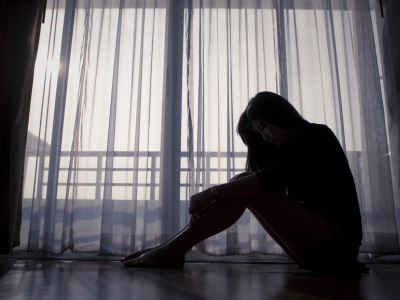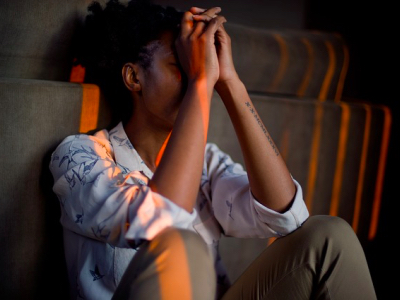 So-called ‘honour’-based violence (HBV) refers to a crime or incident, committed for the purposes of defending, or protecting the honour of, an individual’s family or community.
So-called ‘honour’-based violence (HBV) refers to a crime or incident, committed for the purposes of defending, or protecting the honour of, an individual’s family or community.
Spreading far across different countries, cultures and religions, the global prevalence of gender inequalities and the subversion of human rights, in expense of harmful traditions, means that the majority of HBV victims are women and girls.
According to data from the Crown Prosecution Service, approximately 76% of reported victims –where gender was recorded – are female, a figure which demonstrates the correlation between HBV and patriarchal expectations of a woman to carry the honour of their fathers, husbands and sons.
Whilst the so-called ‘honour’ label is used to categorise this type of violence, it is important to stress that honour can never be an excuse for the use of abusive actions or behaviours against others. Instead, perpetrators of HBV exploit victims by misusing their religion or culture, justifying the violence as an inevitable consequence of a person’s ‘immoral behaviour’ that has brought ‘shame’ to the family or community. For this reason, Kofi Annan, previous UN secretary, described HBV murders as ‘shame killings’: a term which more accurately describes the ethical condemnation that is always deserving of these crimes.
Murders, violence and non-physical forms of abuse within the framework of familial and communal structures is what makes HBV particularly sickening. Often with parental and spousal support, victims are kidnapped, mutilated, forced to commit suicide or murdered for ‘so-called’ immoralities including refusing a forced marriage, engaging in pre-marital sex and pregnancy. Other cases evoking abusive punishments have been a result of girls coming home late, being inappropriately dressed and even for ‘allowing themselves to be raped’.
As HBV victims could be anyone’s neighbour, work colleague or community member, recognising the signs of HBV are vital in ensuring that the individual receives support in escaping their abusive environment. Warning signs for HBV include frequent injuries, personality changes, anxiety and depression disorders, accompaniment to and from work (or school in cases involving children) and absenteeism or lateness in the workplace.
Male Victimization
Whilst HBV disproportionally affects women and girls, an estimated 20% of HBV victims are male, with factors such as sexuality and disability putting certain men at particular risk of similar abusive or murderous acts.
LGBT ‘honour’ abuse is a global issue, occurring when an individual’s family or community perceives homosexuality as a sexually ‘immoral’ behaviour.
In the UK, whilst the majority of recorded ‘honour’ crimes target South Asian females, South Asian males have reported physical or sexual assault and imprisonment if they are seen to be obstructing the strict gender role expectations imposed upon them by conservative religious ideals. According to a recent study by BBC Newsnight, 70 men in England who were subject to HBV attributed their victimisation as a result of their sexuality. One interviewee stated that: ‘I felt I could be killed… I would be disowned, kicked out of the house and forced to marry a woman’.
Despite the prevalence of HBV within this community in particular, it is important to note that this form of domestic abuse is not synonymous with any one community, culture or religion. It is also found in various other communities across the UK and world; the problem is also present within Catholic communities, for example, particularly in Northern Ireland – where same-sex marriage was only legalised last week.
Barriers facing migrant women
For first and second-generation migrant victims in the UK, ongoing hostile immigration policies and distrust of local authorities means they are at further risk of staying silent about their abusive and life-threatening situations. With last year’s investigations in the hostile environment policy exposing secret arrangements with the police and the NHS to report vulnerable individuals to immigration officers, it became evidence that abused women are left isolated by the very authorities who are supposed to protect them.
For example, since 2017, hospital trusts are required to verify the immigration status of patients and can report them to the Home Office if individuals are unable to pay hospital fees within a two-month timeframe. For victims of violence and rape, necessary medical and pregnancy care is blockaded by steep fees and harsh regulations, resulting in women choosing to put themselves and their babies at risk. One report by Maternity Action found that ‘strict government regulations’ were breaking the ethical duties of midwives’ and leading to racial discrimination against non-white patients with ‘non-British’ names.
Additionally, the ease in which perpetrators can bring victims of forced marriage into Britain on a UK Spousal Visa leaves women dependant on their abuser in fear of being deported or exiled from their families as a result of wanting separation.
One case saw a woman, Madiha, who arrived in the UK from Pakistan ten years previously, having suffered continual HBV by her husband and family because she was unable to fall pregnant. Despite being told by the 101 services that she must report the crime herself, Madiha, who couldn’t speak English, was fortunately aided by an officer who specialised in HBV training and emotionally supported by staff at the Halo Project Charity.
However, whilst charities and local organisations are trying their best to alleviate HBV victims like Madiha from their abusive environments, an overwhelming majority of victims will either be coerced into staying quiet by their families or choose to remain silent in fear of being targeted by the Home Office. Whilst the coercion problem is more complex to infiltrate, it is the responsibility of the government and local councils to offer far greater support to HBV victims by ensuring – through legislation – they have access to housing, healthcare and emotional aid. Deportation should never be a consequence of coming forward.
 About the author
About the author
Maddie Grounds is the political correspondent for the Immigration Advice Service, a UK-based organisation which offers free legal advice and application assistance for asylum-seekers and domestic abuse survivors.






